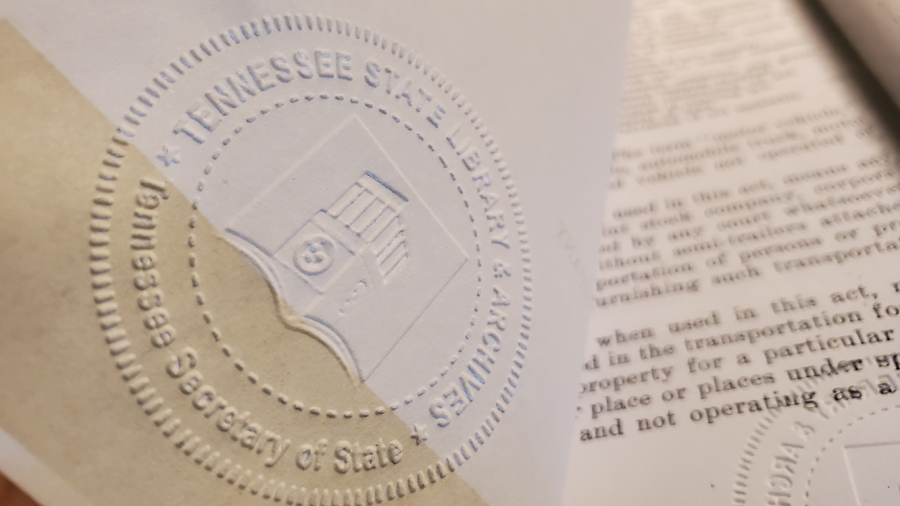
This seal is on each page of certified copies of state law pertaining to “privilege taxable activity” of driving an automobile. (Photo David Tulis)
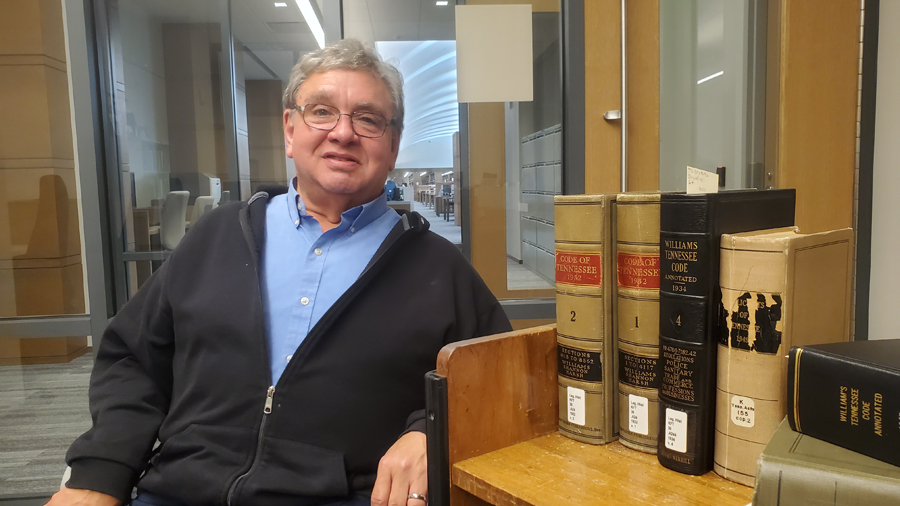
Vince McGrath is legislative history coordinator at the Tennessee state library and archive at 1001 Rep. John Lewis Way North. (Photo David Tulis)
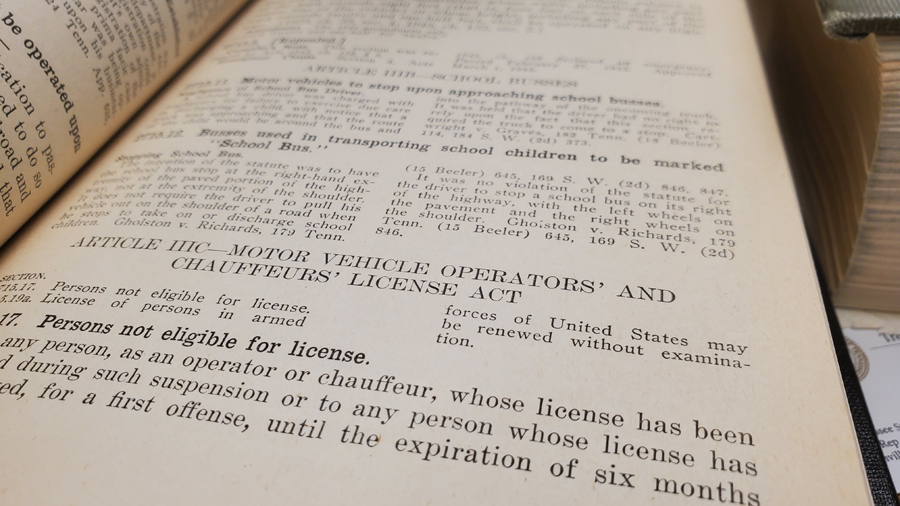
Notice, foreground, the original name of the state driver license law. The law pertains only to commercial, hired use of the road. The current name of the law is the “uniform and commercial driver license law of 1988.” (Photo David Tulis)
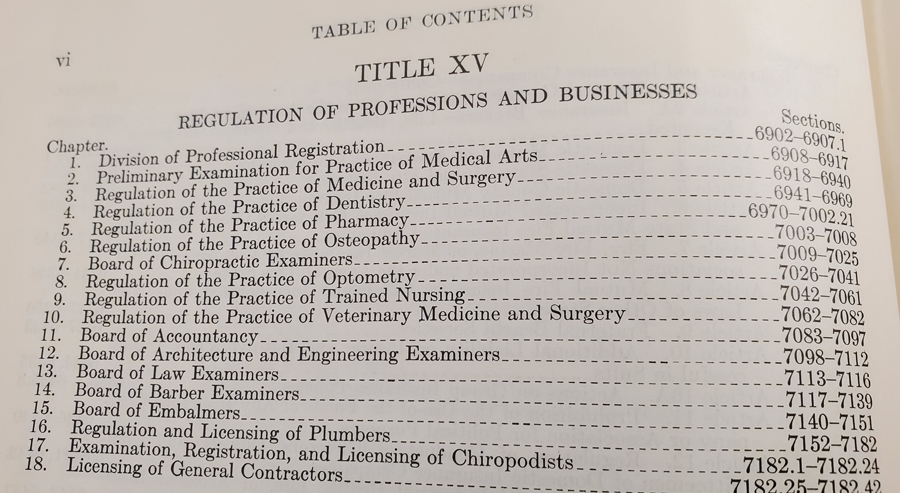
Privilege is the state claim of ownership of an occupation. Unique governing boards regulate each trade. Operating a motor vehicle is governed by the commissioner of the department of safety under UAPA, the uniform administrative procedures act. (Photo David Tulis)
NASHVILLE, Tenn., Thursday, May 22, 2025 — The chief librarian of the legislative division of the state library and archive here is Vince McGrath, who is strongly interested in my reading the law and obtaining certified copies of law from 1932 to 1950.
I spend most of the day reading in volumes Mr. McGrath digs up for state regulation of “motor vehicles” and imposing the financial responsibility law, both issues of which are focus of separate public interest lawsuits to scale back state-based violence and oppression..
Mr. McGrath brings to my attention a Tennessee financial history with material about the creation of privileges in the Tennessee constitution.
A reign of terror by police, deputies and troopers for decades faces closure if my presentation of law convinces three judges of the U.S. 6th circuit court of appeals that my Nov. 22, 2023, arrest was illegal and without probable cause. This case to “decriminalize” traffic stop stands on the ground that the form of law applied in my seizure by a county deputy was erroneous, and that the allegation of a damaged taillight was subject first to contested case allegations under the uniform administrative procedures act.
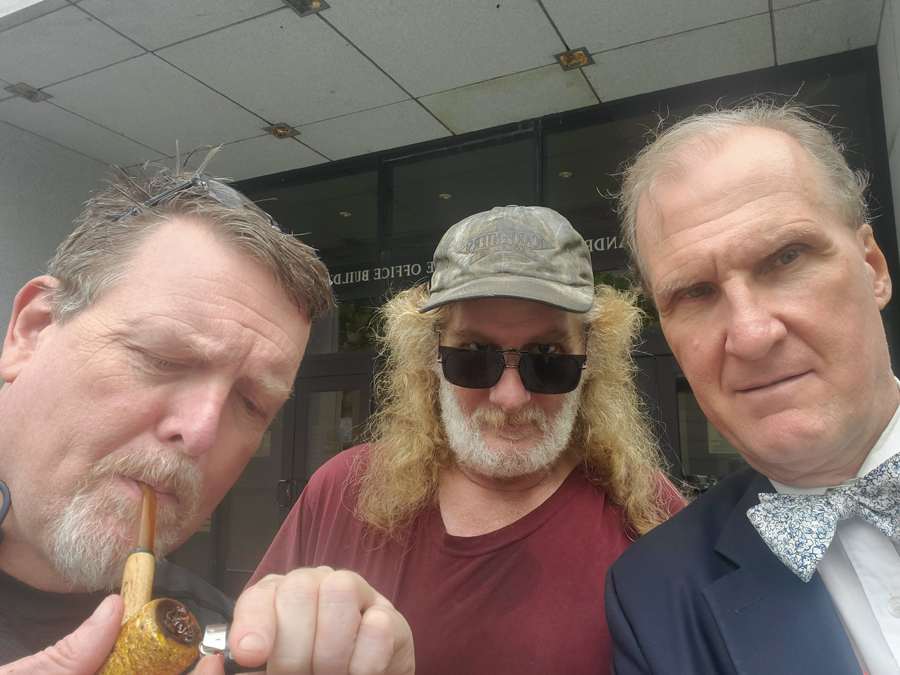
Hillbilly readers of law, the Gnomes include, from left, Christopher Sapp of White County, Ed Soloe of Alcoa, lighting up just outside the department of revenue in Nashville. (Photo David Tulis)
This claim, to my knowledge, has not been articulated before in hundreds of police abuse cases. The claim, in legal parlance, is “waived.” What has grown up in the law is a stilted, partial accounting of “crimes” involving blinkered taillights, expired registrations, speeding and the like.
The so-called “sovereign citizen” defendants and appellants who have argued the right of ingress-egress or travel have raised the issue indirectly by insisting on the right to travel. I want to avoid the briarpatch judges have built to protect the status quo. I am not arguing right to travel. I am arguing the right I to have the moving party — the state — obey its duty to exhaust its administrative remedies before resorting to criminal prosecution.
This may not sound startling. May not sound like news. But to the legal and political establishment in Tennessee it is intended to be a quiet, little noticed revolution against a system ruining thousands of ordinary good people and benefitting lawyers, bondsmen, DUI school owners, judges, jailers, jail phone companies, prison food vendors, and law enforcement agencies.
Traffic stops are administrative breaches

A librarian inks the back of each packet of certified copies of law I obtain at the Tennessee state library and archive in Nashville at its grand new building at 1001 Rep. John Lewis Way North in Nashville. (Photo David Tulis)
Traffic stops aren’t rightly criminal. Traffic stops are commercial enforcement and oversight of privilege taxable activity. Traffic is the same as transportation. Traffic = commerce, for-hire activity. Traffic stops are,as a matter of law, economic privilege regulation of a state-claimed occupation. It is a truism since high school “driver ed” class: Driving or operating a motor vehicle is a privilege.
That statement really means something. An administration of the occupation of driver of a motor vehicle is, under current practice globally in the U.S., illegally subjected to criminal police power rather than economic and regulatory police power. Driving and operating a motor vehicle is a privilege, just like barbering, optometry or embalming. Misuse of a motor vehicle under a license is an administrative matterBest handled by correspondence or email. Traffic stops for decades create crime and violence, endanger lives of our honorable police and deputies, and they terrorize the poor.
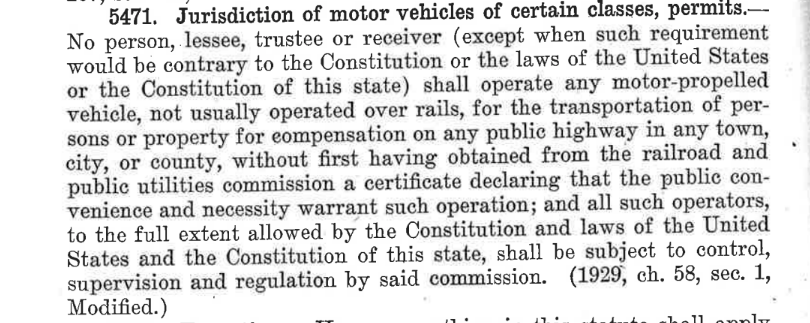
Public convenience is a basis for regulating transportation (trucking).

In 1932, before the driver license law, autos were licensed as “vehicle” as used in commerce. In other words, an auto used in commerce is a vehicle, and a vehicle must be connected ith a license to be “[operated].”
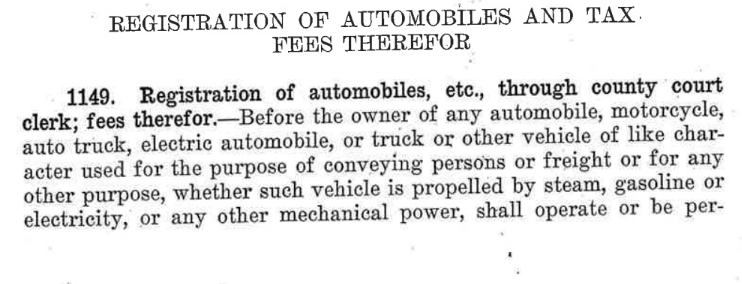
Registration is for conveyances used or “conveying persons or freight or for any other [commercial] purpose.” Under Tenn. Const. Art. 2 § 28, neither property or liberty are taxable nor taxed.
It is my theory that because driving or operating a motor vehicle is a privilege, just like embalming or plumbing, the only way in the law to deal with wrongdoing under the license or privilege is to have a hearing under that particular profession’s state regulator.
And that is not the county deputy, Brandon Bennet. That is not the city police officer. It is the commissioner of safety who oversees the occupation, calling and vocation hauling goods or people for hire in whatever size vehicle. The commissioner of safety is Jeff Long.
My goal in research is to show that ending Jim Crow is possible by reasserting the claims of privilege in the Constitution upon sheriff’s departments and police departments that poach the commissioner’s authority just like commissioner of revenue has poached on commissioner Jeff Long’s authority in the department of safety to manage and oversee and administer with financial responsibility law.
I have a court case on that abuse, too.
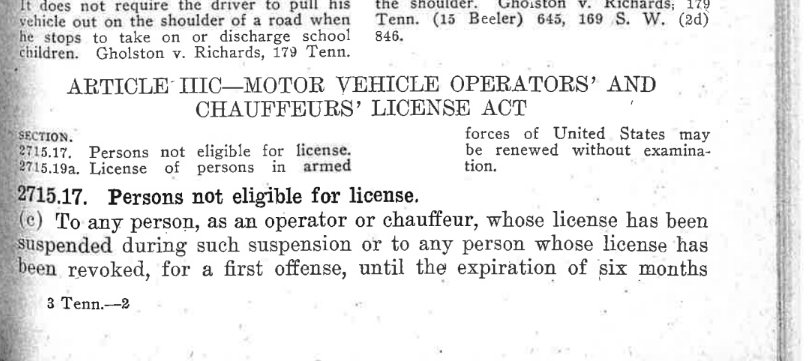
If you are involved in commercial use, you must have a driver license. This is the name of the early driver license law. The current name makes clear that it arises from your “for hire” use. The curent name is “uniform and commercial driver license law of 1988.”
In each of my two court cases involving federal judges there is rejection of a limit on authority and rejection of clear lines of authority by the state government.
Mr McGrath is very genial and at the end of my stay goes to the copier and runs copies of the pages requested from several law books. These books show that commercial regulation of the use of the road is always upon, guess what, commerce.
The books show the first iteration of the Tennessee financial responsibility law of 1977 that appeared in the 1949 edition of the Tennessee code
As I intend to use some of these laws, I have had all my copies certified by notarization at the end on the back page and also each page put into image stamp. This service is significant, as i intend to show in my appeal brief to the 6th circuit that driving a motor vehicle = a privilege, and that use of automobiles are either under privilege, or not under privilege (that is, free).
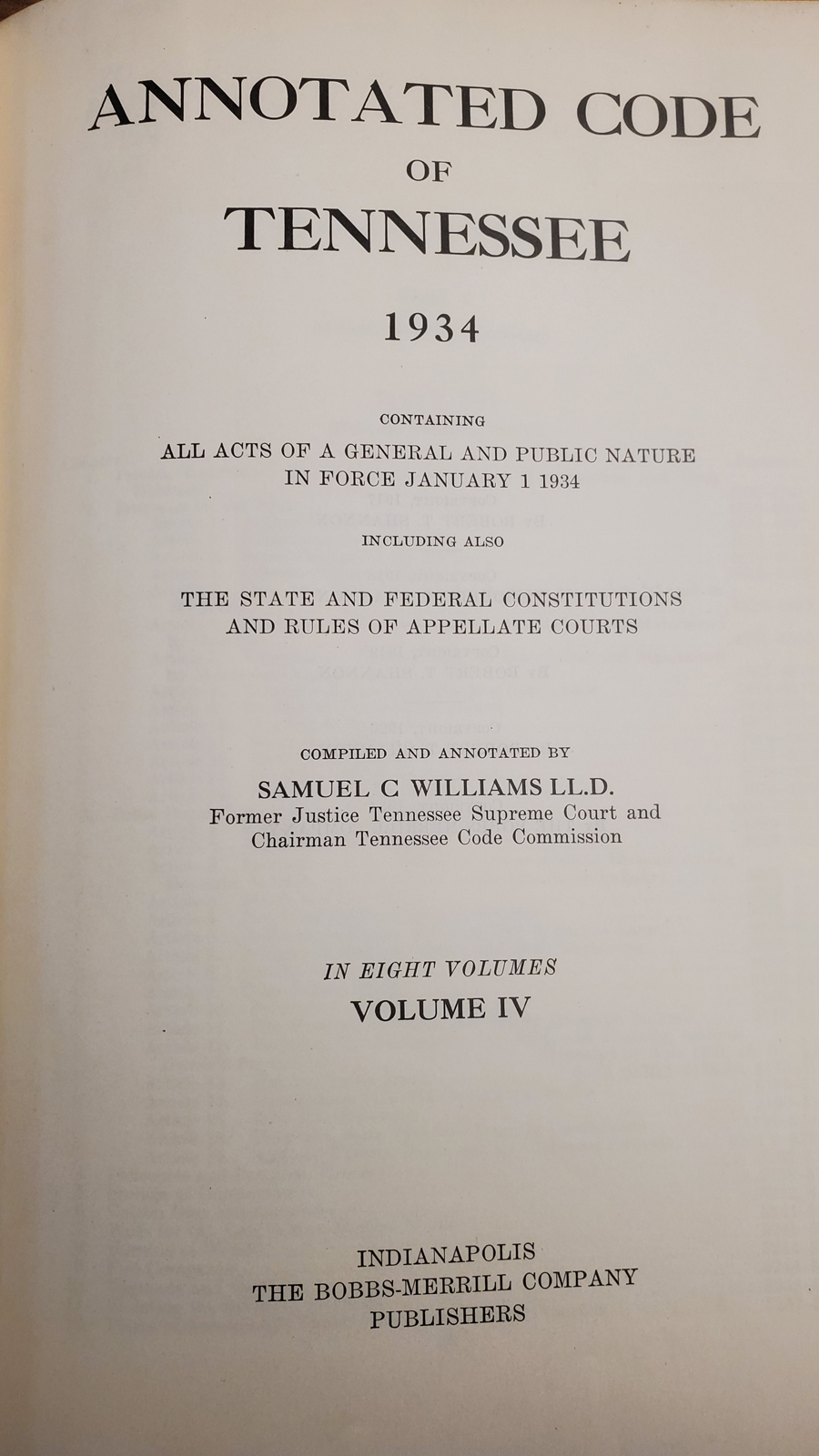
This cover is for the 1934 code book.
Like I say, I am going to avoid arguing the right to travel. Instead, I have to show how the driving privilege is subject to administrative enforcement primarily, and criminal only in extremis.
David runs a personal nonprofit fighting and mercy ministry. He thanks you for checks sent directly to c/o 10520 Brickhill Lane, Soddy-Daisy, TN 37379. Also at GiveSendGo.
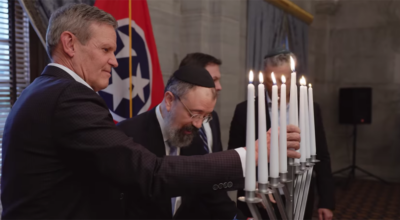

This article evidences the continuous misfeasance and malfeasance executed by police, sheriffs, Judges, Magistrates, Commissioners, for over 90-plus years.
Being 90-plus years, EVERY government employee has already been put on NOTICE, and can only be considered to be KNOWINGLY violating the Constitution(s) and law(s) of the United States and of Tennessee (state).
Any government employee claiming ignorance (fraudulently so) is admitting to falsifying their oath of office. Patrick Henry warned us 225 years ago…